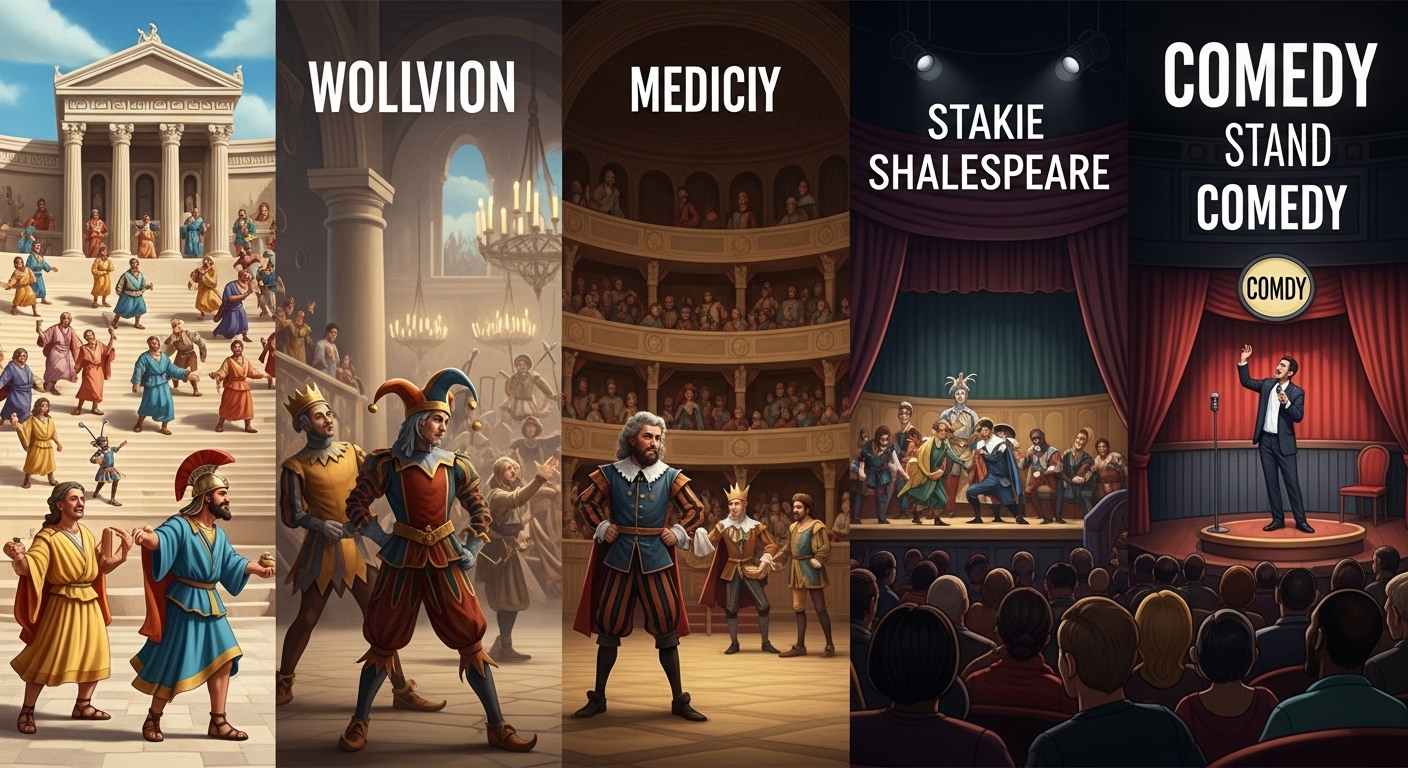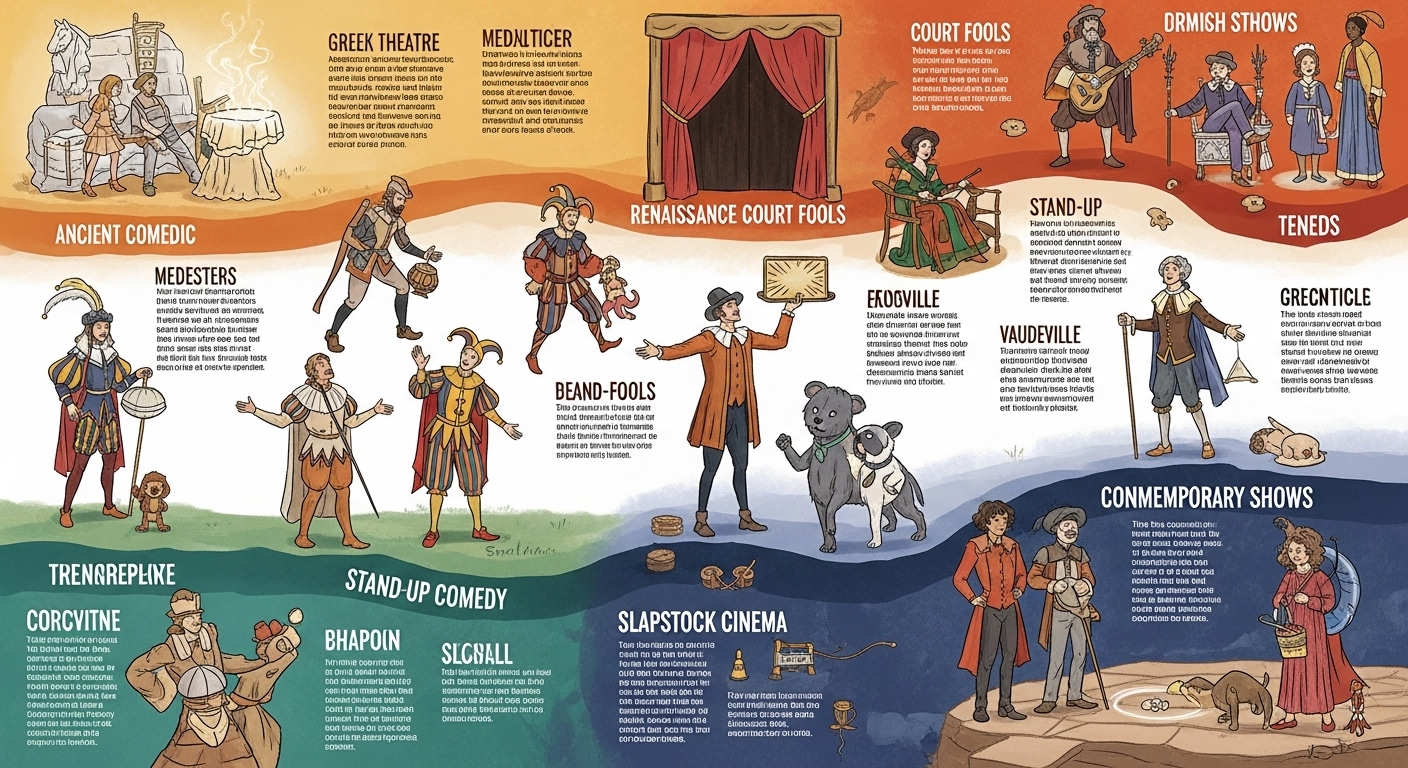**Unveiling the Magic of Comedy: Laughter as the Best Medicine**
Comedy has long been celebrated as a universal language that transcends barriers, bringing joy and laughter to people across cultures and generations. From the ancient Greek theaters to the modern-day stand-up comedy clubs, humor has played a vital role in human society, serving as a powerful tool for entertainment, social commentary, and even healing. In this blog post, we delve into the fascinating world of comedy, exploring its history, significance, applications, and future trends.
**A Brief History of Comedy**
The roots of comedy can be traced back to ancient civilizations, where humor was used to entertain and educate audiences. In ancient Greece, comedies were performed as part of religious festivals to honor the god Dionysus, featuring exaggerated characters and absurd situations that elicited laughter from the crowd. The Roman playwrights also embraced comedy, creating timeless works that continue to be performed to this day.
Throughout history, comedy has evolved alongside society, reflecting the changing norms and values of different eras. In the Middle Ages, comedic performances were often bawdy and irreverent, providing a counterbalance to the strict religious doctrines of the time. The Renaissance saw the rise of comedic plays that satirized the political and social elite, paving the way for the modern concept of satire as a form of comedic expression.
**The Significance of Comedy**
Comedy serves as a mirror to society, reflecting its absurdities and contradictions in a lighthearted manner. Through humor, comedians and writers can address sensitive topics, challenge prevailing attitudes, and provoke thought in a way that is both entertaining and thought-provoking. In a world filled with uncertainty and stress, comedy offers a much-needed escape, providing a moment of respite from the challenges of everyday life.
Moreover, laughter has been scientifically proven to have numerous health benefits, including reducing stress, boosting the immune system, and improving overall well-being. Comedy has the power to uplift spirits, forge connections between people, and foster a sense of community through shared laughter. In times of crisis, comedy can serve as a beacon of hope, offering a ray of light in the darkest of times.
**Applications of Comedy**
Comedy has found its way into various forms of entertainment, from sitcoms and movies to stand-up comedy specials and improv shows. Comedians use their wit and humor to entertain audiences, providing a unique perspective on the world around them. Satirical comedy programs like “The Daily Show” and “Last Week Tonight” have become popular for their incisive take on current events, blending humor with insightful commentary.
In recent years, social media platforms have provided a new stage for comedians to showcase their talent and reach a wider audience. Memes, gifs, and viral videos have become the currency of online humor, with comedians using these mediums to connect with fans and create new comedic trends. The rise of podcasting has also given comedians a platform to share their thoughts and engage with listeners in a more intimate setting.
**Future Trends in Comedy**
As technology continues to evolve, the landscape of comedy is also changing. Virtual reality and augmented reality offer new possibilities for immersive comedic experiences, allowing audiences to interact with comedians in ways never before possible. Live streaming platforms like Twitch and YouTube have enabled comedians to reach global audiences in real-time, blurring the lines between traditional and digital entertainment.
With the rise of artificial intelligence and machine learning, some have speculated about the future of comedy in a world where algorithms can generate jokes and comedic content. While machines may be able to mimic humor to some extent, the essence of comedy lies in human creativity and empathy, qualities that are difficult to replicate artificially. It is likely that comedy will continue to evolve and adapt to new technologies, finding innovative ways to entertain and inspire audiences in the digital age.
**In Conclusion**
In conclusion, comedy remains a powerful force in human culture, bringing laughter and joy to people around the world. From its humble origins in ancient theaters to the digital age of social media and streaming platforms, comedy has endured as a timeless art form that transcends boundaries and unites us in shared laughter. As we navigate the challenges of the modern world, let us remember the healing power of comedy and the simple joy of a good laugh. After all, as the saying goes, laughter is truly the best medicine.



